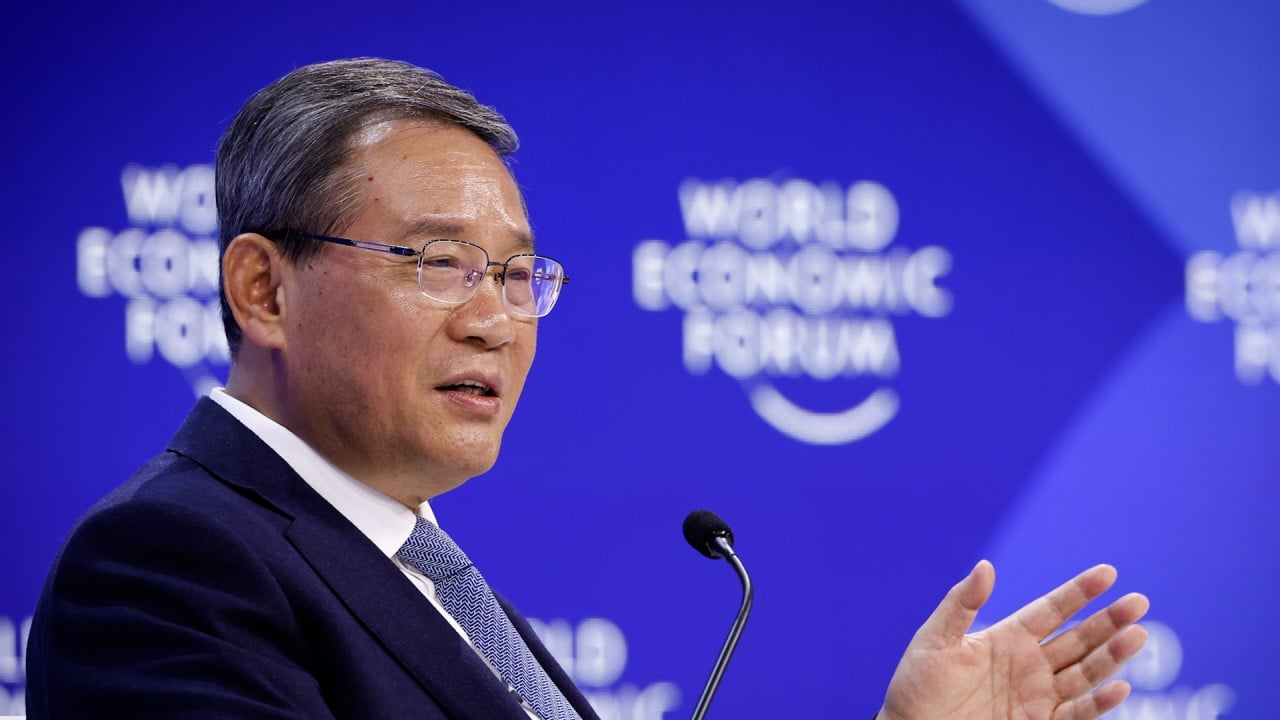
China’s economy faces ‘high uncertainty’ in 2024 as IMF predicts 4.6% growth, calls for greater data transparency
- International Monetary Fund (IMF) expects China’s economy to grow by 4.6 per cent in 2024, it said as it released a review of its Article IV consultation
- Washington-based institution highlighted ‘significant’ gaps in China’s economic and financial data, underlined by a six-month suspension of its youth unemployment data
Uncertainty surrounding China’s economy remains high this year, dragged down by the ongoing property market slump, the International Monetary Fund (IMF) said on Friday, while the Washington-based institution also urged Beijing to address gaps in its economic and financial data.
“Uncertainty surrounding the outlook is high, particularly given the existing large imbalances and associated vulnerabilities,” the IMF said.
“Staff estimate that, in such an adverse scenario which entails a deeper and more prolonged contraction in the property sector, GDP in 2025 could be 1.8 per cent lower compared to the baseline [of 4 per cent].”
The outlook was included in the IMF’s review of its Article IV consultation, which took place in China over a month in October and November last year. Its Article IV Mission sends economists to member countries to monitor economic and financial policies and provide recommendations.
The IMF said further shocks to growth and earnings amid high debt levels in the property sector and within some local governments could bring about broader balance sheet stress and weaker lending capacity, including at smaller local financial institutions.
The institution also brought up data transparency issues with the Chinese authorities during its visit last year, including the suspension of its youth unemployment data.
The IMF also highlighted “significant” gaps in quarterly GDP data, general government figures and details on off-budget entities including local government financing vehicles, which are used by local authorities to borrow money off the balance sheet.
‘Growth nothing to write home about’: 7 takeaways from China’s economic data
There have also been discrepancies among official sources in balance of payment and customs trade data, according to the IMF.
“Greater transparency” is needed concerning China’s foreign exchange interventions and in its recording methods for public sector foreign assets to “help explain the widening divergence between changes in official foreign assets and accumulated changes in foreign reserves recorded in the balance of payments”, the IMF added.
In recent years, China’s foreign exchange reserve growth on the balance sheet of the People’s Bank of China was found to have diverged from reported foreign exchange reserves included in its balance of payments data.
Trade surplus data from China’s customs authority also deviated significantly from the balance of payments figures, which track the same data.
IMF executive director for China, Zhang Zhengxin, issued a statement as part of the review that addressed some of the concerns.
Zhang defended Beijing’s measures to support its beleaguered property sector, saying that the IMF’s forecast on the real estate market was, to some extent, “too pessimistic”.
Zhang said that the property sector had been “stabilising and recovering, and its downward impact on the economy will continue to reduce gradually in the future”.
Radio silence on China’s economic plenum suggests reform still in the back seat
China “has always fully complied with our agreements and commitments to the IMF on data disclosure and provision”, Zhang added.
Zhang said that China would continue to “expand” big data collection and improve quality and transparency to better support policymaking needs, citing the signing of a memorandum of understanding between the IMF and the NBS in November as a demonstration of its commitment to enhancing its “data issue”.
China’s use of state subsidies were also included as part of the discussions between Chinese officials and the IMF.
The IMF has warned the rising use of subsidies by some of the world’s largest economies has contributed to a significant increase in global trade tensions.
Industrial policy measures, including domestic subsidies and trade restrictions, are becoming more frequent among G20 economies
“Industrial policy measures, including domestic subsidies and trade restrictions, are becoming more frequent among G20 economies,” the IMF said.
“While such interventions can be justified in the presence of clear market failures, they also risk triggering retaliatory responses by trading partners, leading to a slippery slope that fragments global supply chains.”



